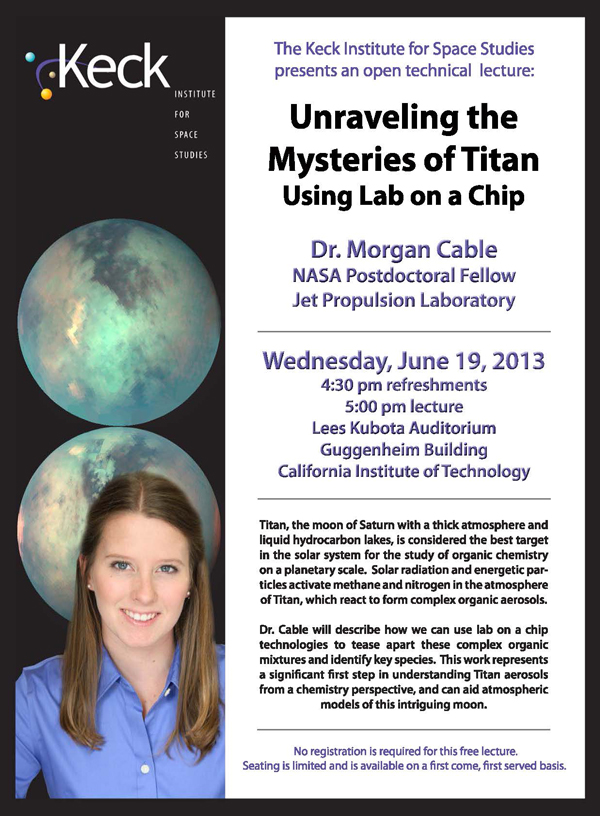

Unraveling the Mysteries of Titan Using Lab on a Chip
Dr. Morgan Cable - NASA Postdoctoral Fellow, Jet Propulsion Laboratory
Wednesday, June 19, 2013
5:00 P.M. Lecture
4:30 P.M. Refreshments
Lees-Kubota Auditorium - Guggenheim Building, California Institute of Technology
Abstract:
Titan, the moon of Saturn with a thick atmosphere and liquid hydrocarbon lakes, is considered the best target in the solar system for the study of organic chemistry on a planetary scale. Solar radiation and energetic particles activate methane and nitrogen in the atmosphere of Titan, which react to form complex organic aerosols. Dr. Cable will describe how we can use lab on a chip technologies to tease apart these complex organic mixtures and identify key species. This work represents a significant first step in understanding Titan aerosols from a chemistry perspective, and can aid atmospheric models of this intriguing moon.
Speaker's Biography:
Morgan Cable is a Postdoctoral Fellow at the NASA Jet Propulsion Laboratory in Pasadena, California. She received her B.A. in Chemistry from the Honors College of Florida Atlantic University in 2005, with minors in Physics and Mathematics. Morgan earned her Ph.D. in Chemistry from the California Institute of Technology in 2010, where she investigated various lanthanide-based receptor sites for the detection of bacterial spores in extreme environments. Her current work as a NASA Postdoctoral Program (NPP) Fellow involves the development of ultrasensitive micro-total analysis systems for the detection of organics on Mars and Titan, one of the moons of Saturn.
